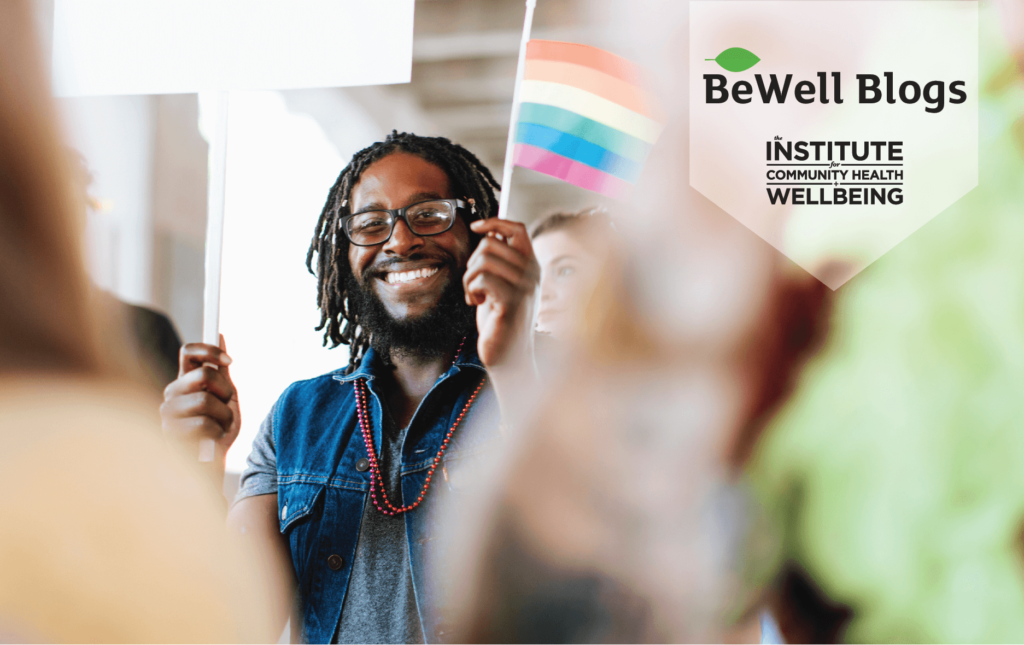
Image: rawpixel.com//pexels.com
By: Sarah Hofstedt, CSUN Public Health Intern
An Interview with Andrew Pari (and Anita Roghanian) from Center for Positive Sexuality
It was mid-morning on a sunny Tuesday outside the CSUN Bookstore Complex, and the Center for Positive Sexuality’s royal purple tablecloth fluttered gently in the San Fernando Valley breeze, a selection of the Center’s reading material holding it down. Andrew Pari, Executive Director of Sexual Assault Awareness, and Anita Roghanian, a CSUN Psychology graduate, sat behind the table, smiling as students and staff drifted by. I met Andrew several years ago and have since enjoyed the privilege of discussing feminist principles and trauma-informed approaches in all aspects with him, and I was excited to know that he had partnered with the Center to help bring awareness of positive sexuality resources to my college campus. He agreed to answer a few questions for the Institute:
Q: Let’s talk about what you’re representing here.
Andrew: Center for Positive Sexuality, just as the title says, is a nonprofit that’s dedicated to educating and informing people about all aspects of human sexuality. It’s open in terms of alternative sexualities, LGBTQ, BDSM play and practice – really, anything that has to do with sex we have a positive view of. One of our cornerstones is what we call the Four Cs of sexuality: Consent, Communication, Caring, and Caution. Whether you’re monogamous, polyamorous, or whatever you’re into, there’s a place for you at the Center.
Q: Alright! What are you doing at CSUN today?
Andrew: We are tabling! And everything I just said, we are here to educate on. We’ve got brochures, an email list, and a couple of copies of our Journal of Positive Sexuality. We are one of very few journals focused on positive aspects of sexuality. This is a very unique journal in that we accept articles from professionals in the field, but also from anyone who has an interest in sexuality and can write articulately to a level of APA standard. If you have an idea or interest in something, we will help you develop that article for publication in our journal. It’s not just for academics.
Q: What are some of the unique challenges on college campuses to you are working to address?
Anita: I think it’s difficult to get students motivated. I find that’s the biggest challenge I’ve seen on campus for our organization is getting students motivated to get involved.
Andrew: This is a general statement about society but I see it a lot in young people: shame and stigma permeate sexuality. I think people have an interest, and they want to learn. They have a desire to try something, but they’re afraid to because of anti-sex messages that are shaming or stigmatizing. I think in our society, especially currently, conversations are being shut down instead of opened up.
Q: How can we foster conversations about sexual assault that still promote positive sexuality?
Andrew: Well, I’ll talk about my practice a little bit. One of the strengths of my practice is talking about inherent desire for sexuality, and how that got warped, twisted, changed, damaged, in the individual I’m working with. Most of my clients want to be able to be able to enjoy their own bodies and their partners’ bodies, but they’re restrained because of the trauma they went through. A lot of the focus is about that idea that sexuality is a positive force, and it was used against them, but that they can get back to.
Andrew is a licensed psychotherapist specializing in treating those who have experienced sexualized violence and trauma, and is a leading expert on the neuro-biological arousal response mechanism in sexualized violence
